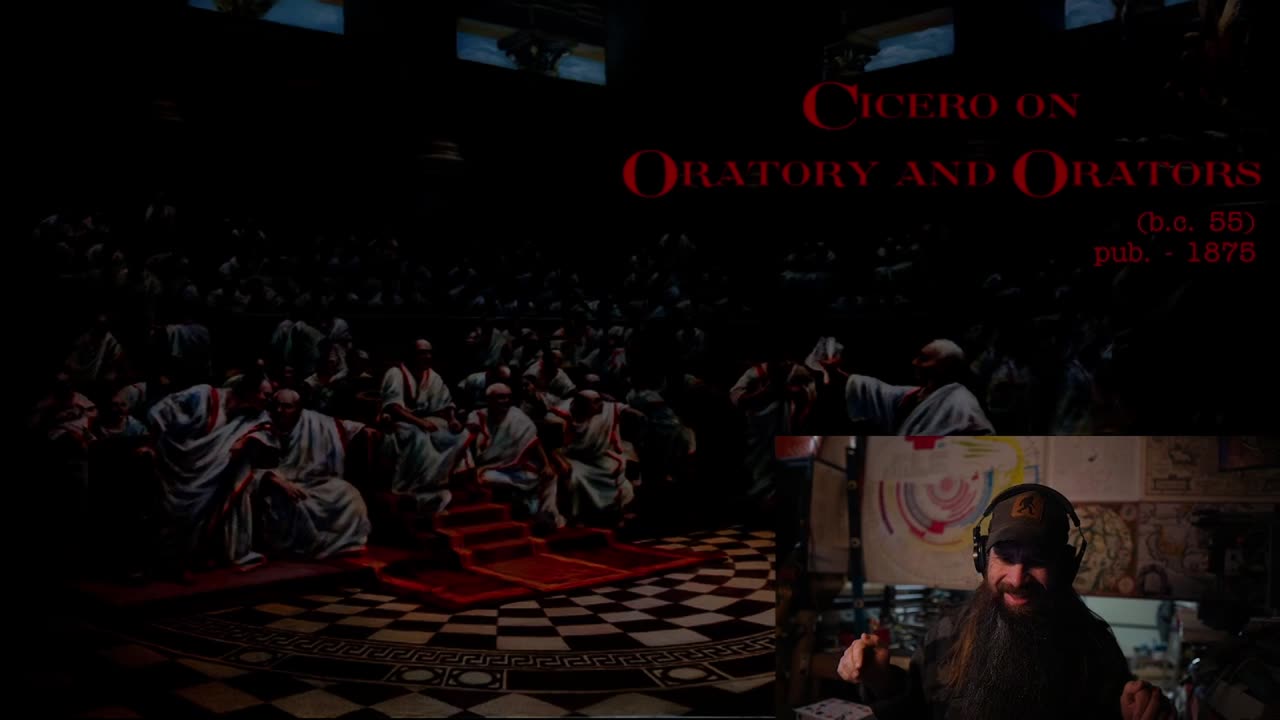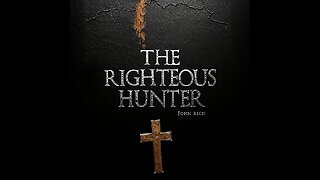Premium Only Content

Cicero on Oratory - B2 - LXI LXII
Cicero on Oratory - B2 - LXI LXII
Cicero discusses the nature of humor and wit in oratory, distinguishing between various forms of jesting and their impact on audiences. He emphasizes the role of thought and language in creating humor and analyzes how serious and ridiculous elements can be intertwined in discourse. Cicero cautions against certain kinds of jesting that may tarnish the speaker's reputation while advocating for wit that is intellectually engaging and appropriate for educated audiences.
Key Points:
Nature of Humor
Cicero outlines that humor consists of both thought and language. The most effective jokes evoke laughter when they combine cleverness in idea with skillful expression.
Serious vs. Ridiculous
He explains that serious topics can often lend themselves to humor and vice versa, making it crucial for orators to navigate the line between seriousness and jest effectively.
Types of Gesturing
Different gests can provoke laughter; however, Cicero identifies forms of humor (like mimicry and indecency) that are inappropriate for educated discourse.
Importance of Wit
Cicero stresses that true wit comes from insightful thought rather than mere comic absurdity, and it often requires a clever play on words that elicits admiration rather than just laughter.
Role of Ambiguity
Ambiguity in language can be clever and engaging, but it should inspire surprise instead of just amusement, highlighting the skill of the speaker in transforming meaning.
-

Neil McCoy-Ward
26 minutes ago🔥 While You're Working Hard... They're Planning To Take EVERYTHING From You!!!
19 -
 2:13:37
2:13:37
Side Scrollers Podcast
3 hours agoTwitch CONTROVERSY Hit New Low + Reddit Mods QUIT + FireMAN is Now Sexist + More | Side Scrollers
51K3 -
 10:18
10:18
Colion Noir
2 hours agoViral TikTok Proves Gun Owners Wrong?
12.7K18 -
 5:31
5:31
John Rich Official
13 days agoThe Righteous Hunter by John Rich
10.4K7 -
 59:51
59:51
Rebel News
2 hours agoEby threatens to block pipeline, Guilbeault out of cabinet, Land disputes continue | Rebel Roundup
15.1K1 -
 1:45:59
1:45:59
Robert Gouveia
3 hours agoAmerican Soldier DEAD! Trump Furious! Afghan 'Vetted by CIA'! Third World FREEZE!
41.7K27 -
 48:48
48:48
The Culture War with Tim Pool
3 hours agoThe West Is COLLAPSING Under Mass Migration | The Culture War's Across The Pond
18.4K47 -
 1:42:33
1:42:33
The Mel K Show
3 hours agoMORNINGS WITH MEL K - We Have Not Yet Begun to Fight - The Clock is Ticking! 11-28-25
24.8K14 -
 1:25:54
1:25:54
Film Threat
15 hours agoHOLLYWOOD FOR SALE! BLACK FRIDAY BLOW OUT! | Film Threat Livecast
14.8K2 -
 LIVE
LIVE
The Shannon Joy Show
4 hours agoSJ Show Nov 28 - The SJ Friday Matinee Watch Party With Commentary Featuring The Big Short!
36 watching